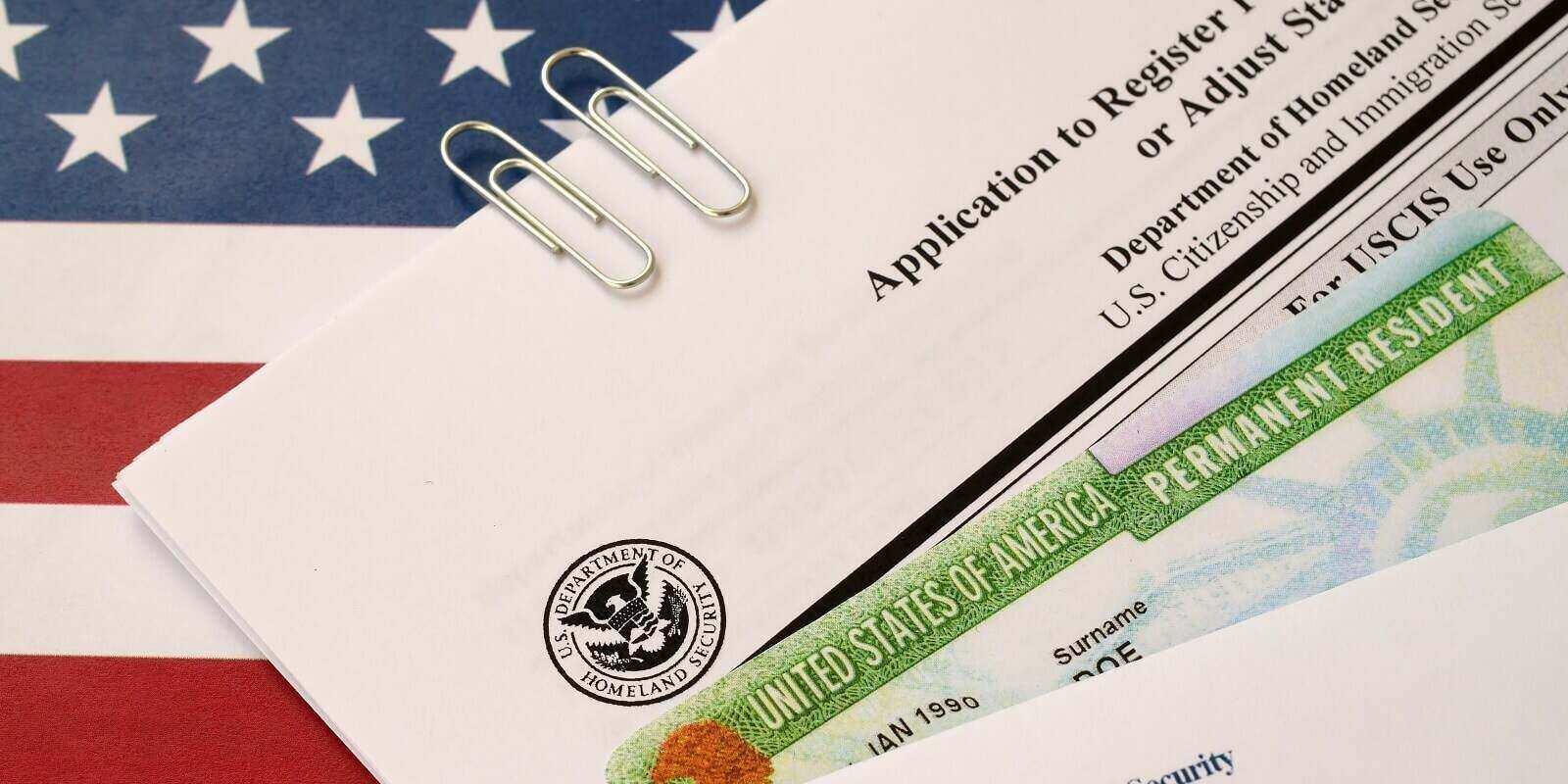Adjustment of status is the process by which an eligible individual already in the United States can apply for permanent resident status (green card) without having to return to their home country to complete the process.
However, not all adjustment of status applications are approved, and receiving a denial can be both frustrating and disheartening. In this article, we will explore some of the most common reasons why your green card adjustment of status may have been denied, and provide guidance on how to address these issues.
Ineligibility for Adjustment of Status
One of the most basic reasons for an adjustment of status denial is simply being ineligible for the process. There are several factors that can make an individual ineligible for adjustment of status, including:
 Entering the United States without inspection (i.e., entering illegally)
Entering the United States without inspection (i.e., entering illegally)- Failing to maintain lawful immigration status while in the United States
- Being in removal proceedings or having a final order of removal
- Having certain criminal convictions or national security concerns
Before applying for adjustment of status, it’s essential to ensure that you meet all eligibility requirements. Consult with an experienced immigration attorney if you have any doubts about your eligibility.
Incomplete or Incorrect Application
Another common reason for adjustment of status denials is submitting an incomplete or incorrect application. This can include:
- Failing to submit all required forms and supporting documents
- Providing incorrect or inconsistent information on your application
- Not paying the correct filing fees
To avoid application errors, carefully review the instructions provided by U.S. Citizenship and Immigration Services (USCIS) and double-check your application before submission.
If you’re unsure about any aspect of the application process, consult with an immigration attorney for guidance.
Failure to Meet Financial Support Requirements
To successfully adjust your status, you must demonstrate that you will not become a public charge, meaning you won’t rely on government assistance for your financial needs. This typically involves submitting an Affidavit of Support from a sponsor (usually a family member) who meets certain income requirements.
If your sponsor does not meet the necessary income threshold or if you fail to submit the required documentation, your adjustment of status application may be denied. To address this issue, consider finding a joint sponsor or obtaining additional evidence of your financial self-sufficiency.
Inadmissibility Grounds
Certain factors can render an individual inadmissible to the United States, which can result in an adjustment of status denial. Some common grounds of inadmissibility include:
- Health-related issues, such as communicable diseases or failure to receive required vaccinations
- Criminal convictions or involvement in terrorist activities
- Misrepresentation or fraud in obtaining immigration benefits
- Unlawful presence in the United States and previous immigration violations
In some cases, you may be eligible to apply for a waiver of inadmissibility, which would allow you to proceed with your adjustment of status application. Consult with an immigration attorney to determine whether a waiver is available and advisable for your specific situation.
Failure to Attend Required Appointments
As part of the adjustment of status process, you will be required to attend appointments with USCIS, such as biometrics appointments and interviews. Failing to attend these appointments without a valid reason or rescheduling in advance can result in the denial of your application.
To avoid this issue, ensure that you attend all scheduled appointments and promptly notify USCIS if you need to reschedule due to unforeseen circumstances.
Insufficient Evidence of Bona Fide Relationship
If you’re applying for adjustment of status based on a family relationship, such as marriage to a U.S. citizen, you must provide sufficient evidence to prove that the relationship is genuine and not entered into solely for immigration purposes.
If USCIS determines that your relationship is not bona fide, your application will be denied. To strengthen your case, submit a variety of evidence demonstrating the authenticity of your relationship, such as joint financial documents, photographs, letters of support from friends and family, and records of shared experiences.
Lack of Continuous Physical Presence
Certain adjustment of status categories, such as those based on asylum or refugee status, require the applicant to maintain a continuous physical presence in the United States for a specific period.
If you have spent significant time outside the United States or have made multiple trips abroad, USCIS may question your continuous physical presence and deny your application. To address this issue, provide detailed documentation of your travel history and any extenuating circumstances that may have necessitated your absences from the United States.
Discretionary Factors
It’s important to note that even if you meet all eligibility requirements, the approval of your adjustment of status application is ultimately at the discretion of USCIS. In some cases, applications may be denied due to negative factors that outweigh positive factors, such as a history of immigration violations or criminal activity.
To improve your chances of approval, it’s essential to present a strong case that highlights your positive contributions to your community, your ties to the United States, and any hardships you or your family would face if your application were denied.
Reach Out to a Professional Northern Virginia Immigration Attorney
Obtaining a green card application denial can be devastating and leave many feeling stuck and demoralized. However, if you’ve been denied an adjustment of status for a green card, there are quite a few different steps you can take.
Becoming familiar with these eight reasons your adjustment of status may have been denied is an important first step to mitigate the stress and anxiety associated with such a process.
Doing research on the forms you need to complete, as well as seeking the advice of immigration lawyers, can also aid in achieving success when trying to obtain lawful permanent residence.
It’s important to remember that although the process may seem daunting, having knowledge about what can lead to application denial is crucial in order to confidently move forward with your green card renewal or application submission.
Navigating the complexities of choosing between an immigrant and non-immigrant visa can be a daunting task, or even understanding the complexities of why your green card adjustment of status was denied.
While such rejections can leave applicants feeling discouraged, it’s important to remember that many denials are temporary and fixable. An experienced immigration attorney can offer insight into the situation and determine what steps need to be taken to bring approval within reach.
The team at Pride Immigration excels in aiding clients to secure their necessary green card adjustment of status, as well as addressing a wide array of immigration-related legal needs.
Our expert professionals are equipped with the knowledge to help you select the right U.S. visa and guide you step by step through any process involved. With Pride Immigration, you’re not just a client, but a partner on your immigration journey.
Beeraj Patel, Esq.
Latest posts by Beeraj Patel, Esq. (see all)
- Transitioning to Permanent Residency Through Adjustment of Status for Asylum Seekers - April 14, 2025
- What to Do If Your Employer Withdraws Support During the Green Card Process - March 31, 2025
- How a Green Card Attorney Can Help with Complex Immigration Cases Involving Family Separation - March 17, 2025
